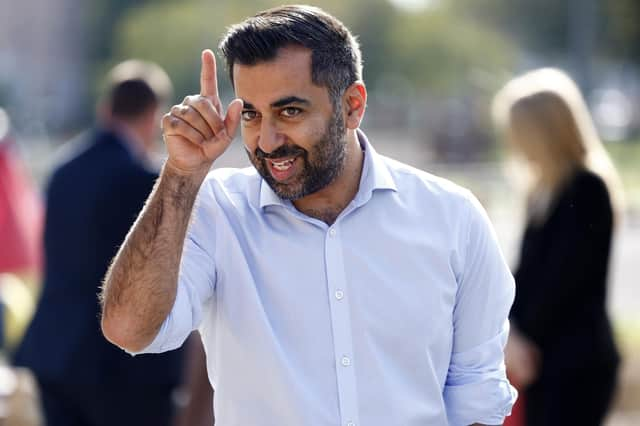SNP at 90: Humza Yousaf may have hoped for happier birthday for Scottish National Party
and live on Freeview channel 276
The SNP celebrated its 90th anniversary at the weekend - though with the current state of the polls and the cloud of the police investigation into its finances hanging over it, it may not have been the happy birthday Humza Yousaf and his colleagues would have wished for.
The Scottish National Party was born from the merger of the National Party of Scotland and the Scottish Party in 1934. For many years it remained on the fringes of Scottish politics and achieved its first parliamentary breakthrough in 1945, when Robert MacIntyre won the Motherwell by-election. But he was only an MP for three months, losing the seat to Labour in that year's general election.


Advertisement
Hide AdAdvertisement
Hide AdThe party then had to wait until 1967 when Winnie Ewing won Hamilton by-election - and although she too lost her seat at the next general election, the party has had at least one MP in the Commons ever since.
There have been many ups and downs over the years - big boosts like Margo MacDonald's victory in the 1973 Govan by-election, leading to a record 11 MPs in the October 1974 general election, but also setbacks such as after the failed devolution referendum in 1979, when the SNP MPs helped bring down the Labour government and then lost most of their seats in the general election which saw Margaret Thatcher elected prime minister.
The advent of the Scottish Parliament in 1999 gave the SNP new opportunities, but the party’s performance in the first election was disappointing, winning 35 of the 129 seats while Labour took 56 and formed a coalition with the Lib Dems.
At the next election in 2003 the SNP lost eight of its seats, but its Holyrood triumph came in 2007 when it emerged as the biggest party, with just one seat more than Labour, and took power as a minority government. It has been in charge ever since.
Advertisement
Hide AdAdvertisement
Hide AdThe result of the 2014 independence referendum, when Scotland voted 55-45 to stay part of the UK, was a big blow to the party, but support for independence has remained strong over the past decade. And although there is no obvious path to achieving independence, thanks to Westminster’s refusal to allow another referendum, it is that support for independence which polling experts say will help prevent an SNP electoral collapse in the face of its current difficulties.
Despite the creation of Alex Salmond’s Alba party and the new prominence of the Greens, the SNP remains the main vehicle for those wanting an independent Scotland. So, 90 years on, even if the party loses the next Westminster and Holyrood elections, it can reasonably also hope for many happy returns.
Comment Guidelines
National World encourages reader discussion on our stories. User feedback, insights and back-and-forth exchanges add a rich layer of context to reporting. Please review our Community Guidelines before commenting.